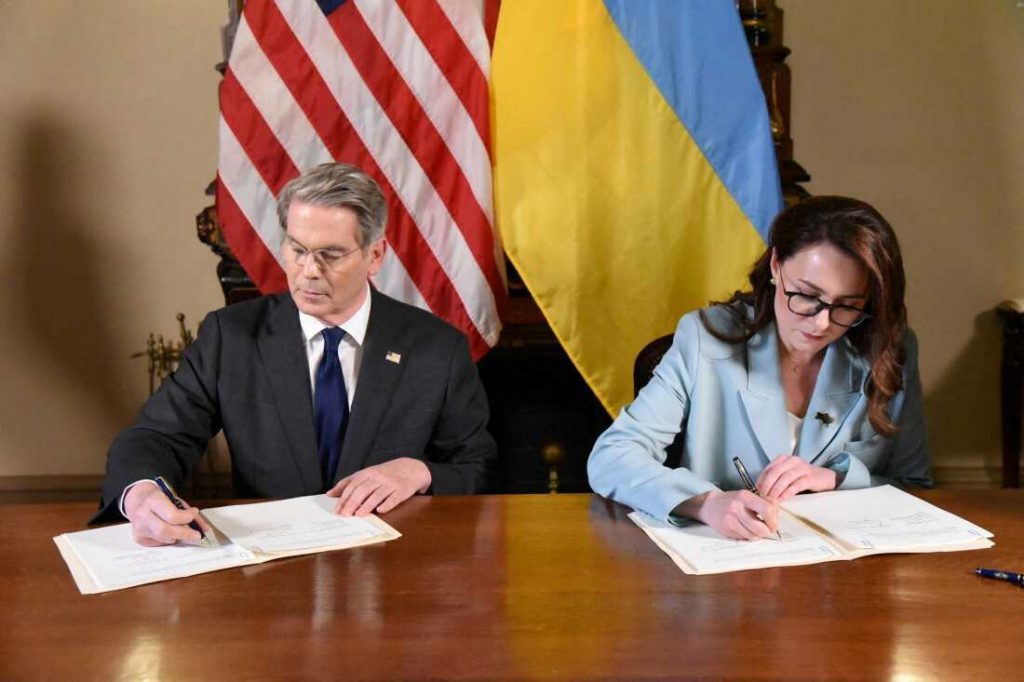On April 30, 2025, Ukraine and the United States signed a landmark agreement establishing the U.S.-Ukraine Reconstruction Investment Fund, a pivotal move aimed at bolstering Ukraine’s post-war recovery and reducing global dependence on Chinese-controlled mineral supply chains.
In her analysis, Kateryna Odarchenko, CEO of SIC Group USA LLC, highlights that the agreement encompasses 57 critical minerals—including lithium, titanium, cobalt, graphite, uranium, and rare earth elements—essential for clean energy, electric vehicles, defense technologies, and other advanced industries. Notably, the deal pertains exclusively to new mineral deposits, ensuring that existing operations remain under Ukraine’s control.
The fund is designed to attract investment without imposing taxes on contributions or revenues, thereby enhancing its appeal to investors. It also reaffirms Ukraine’s territorial integrity and sovereignty over its natural resources, a significant assertion amid ongoing conflicts in mineral-rich regions.
U.S. Treasury Secretary Scott Bessent described the agreement as a strategic tool to “pressure Russia” in peace negotiations, reinforcing America’s commitment to Ukraine’s sovereignty and long-term success.
Despite Ukraine’s vast mineral wealth, only about 15% of its 20,000 deposits had been actively developed before the 2022 full-scale invasion. The country holds a third of Europe’s lithium, 7% of its titanium, and an estimated 19 million tons of graphite, positioning it as a potential leader in global mineral production.
However, challenges remain. Extracting these resources is capital-intensive and time-consuming, with projects potentially taking 10 to 20 years to become operational. Additionally, infrastructure destruction, legal uncertainties, and security risks pose significant hurdles for investors.
The agreement also underscores the need for reforming Ukraine’s state-owned enterprises (SOEs) in the natural resources sector, which have historically suffered from inefficiency and a lack of transparency. Implementing robust governance standards is crucial to attract and maintain foreign investment.
Strategically, the deal serves as a countermeasure to China’s dominance in critical mineral refining, as China currently controls a significant share of global rare earth production. By developing Ukraine’s mineral resources, the U.S. aims to diversify supply chains and reduce reliance on adversarial nations.
While tangible benefits may take years to materialize, the U.S.-Ukraine minerals deal represents a significant step toward Ukraine’s economic sovereignty and the restructuring of global mineral supply dynamics.
For a detailed analysis, read the full article by Kateryna Odarchenko and Serhii Kolisnyk here: Why the US-Ukraine Minerals Deal Matters.
